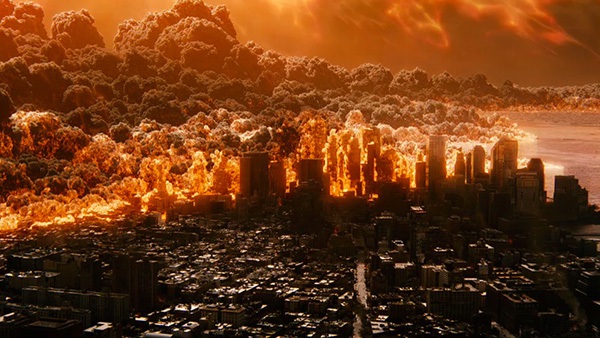Will there be an apocalypse?
The concept of the end of the world has existed in people's minds for thousands of years, expressed through many religions, cultures and literary and artistic works. However, in order to answer the question "Will there be an apocalypse?" in detail and scientifically, it is necessary to consider it from a variety of angles, including scientific, religious, and cultural.
1. Apocalypse in Science
a. Natural Disasters and Natural Disasters
Meteorites and comets: One of the biggest potential threats to life on Earth is the possibility of colliding with a large meteorite or comet. Impact events can cause mass extinctions, just like the collision about 65 million years ago that led to the extinction of dinosaurs.
Supervolcanoes: Massive volcanoes like Yellowstone in the U.S. have the potential to cause catastrophic eruptions, alter the global climate, and cause mass extinctions.
Climate Change: The rapidly changing climate due to human activity can lead to environmental disasters such as sea level rise, extreme weather, and biodiversity loss, which can threaten human survival.
b. Threats from humans
Nuclear war: The development and use of nuclear weapons can lead to nuclear war, which has devastating global consequences and can lead to the end of humanity.
Biology and disease: The emergence of new pathogenic bacteria and viruses can cause global pandemics, similar to the COVID-19 pandemic, but to a greater degree of devastation.
2. The Apocalypse in Religion and Culture
a. Religion
Many religions have predictions about the end of the world:
Christianity: In the Bible, the Book of Revelation describes the events that will take place at the end of the world, including the return of Jesus and the battle of Armageddon.
Islam: The Day of Judgment (Qiyamah) is described in the Qur'an, which is the day when people will be judged for their actions and be destined for eternity.
Buddhism: Some Buddhist scriptures talk about the decline of the Dharma and the difficulties that will arise before the Dharma is restored.
b. Culture
The apocalypse is also depicted in many literary and artistic works:
Literature and Movies: Novels and movies such as "The Road," "Mad Max," and "The Book of Eli" depict a post-apocalyptic world, with devastating scenes and harsh survival.
3. Possibility of the end of the world in reality
Although there are many theories and predictions about the end of the world, there is no concrete scientific evidence to prove that an apocalyptic event will occur in the near future. However, being aware of and preparing for potential disasters is crucial. Preventive measures such as monitoring near-Earth meteorites, mitigating climate change, and controlling nuclear weapons are necessary steps to protect our planet and life.
Conclude
Whether there will be an apocalypse is a difficult question to answer definitively. From a scientific perspective, there are many potential threats that could cause major disasters, but there is no concrete evidence that the end of the world will occur in the near future. From a religious and cultural perspective, the concept of the apocalypse carries many symbolic and spiritual meanings, reflecting people's fears and hopes about the future.
Understanding the potential dangers and preparing for bad situations can help us live safer and more sustainable on the planet.


Đăng bình luận